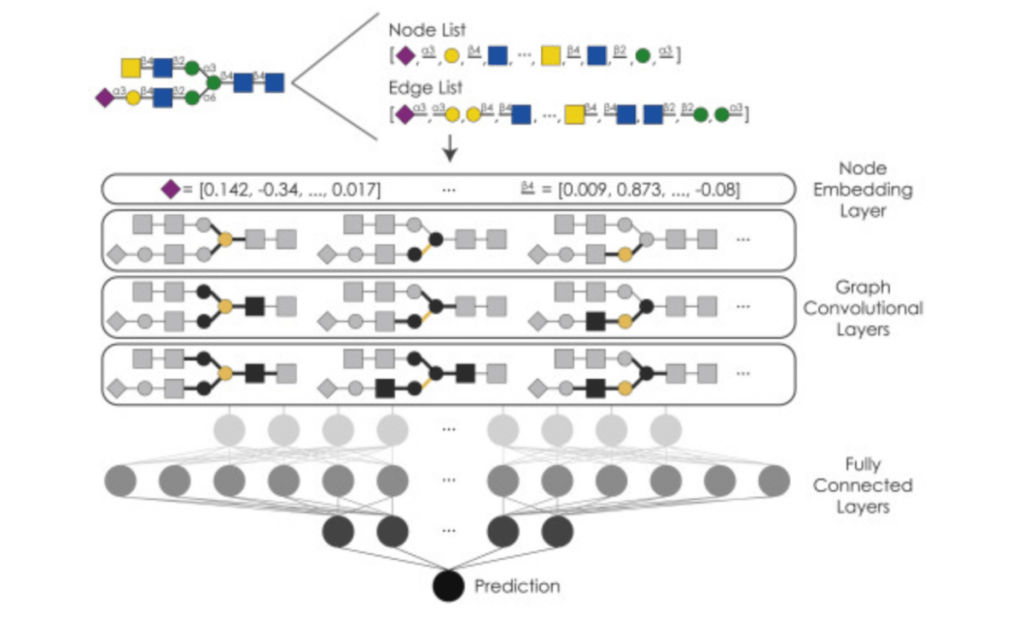 New research outlined in Science Daily examines the role of glycans – carbohydrate-based polymers – in initiating contact between viruses and human cells. The research team, including postdoctoral research fellow Rebekkah Burkholz and Professor John Quackenbush, has developed an artificial intelligence-based model to analyze glycans, improving our general understanding of the infection process. The model will not only help make it possible to predict new virus-glycan interactions but should enable the future development of glycan-based antivirals, medicines that suppress the ability of viruses to replicate. The model will also lead to a better understanding of zoonotic diseases, such as SARS-CoV-2, by measuring how many mutations would be necessary for the viruses to recognize human glycans, and which parts of the human body are likely targeted by a potentially zoonotic virus.
New research outlined in Science Daily examines the role of glycans – carbohydrate-based polymers – in initiating contact between viruses and human cells. The research team, including postdoctoral research fellow Rebekkah Burkholz and Professor John Quackenbush, has developed an artificial intelligence-based model to analyze glycans, improving our general understanding of the infection process. The model will not only help make it possible to predict new virus-glycan interactions but should enable the future development of glycan-based antivirals, medicines that suppress the ability of viruses to replicate. The model will also lead to a better understanding of zoonotic diseases, such as SARS-CoV-2, by measuring how many mutations would be necessary for the viruses to recognize human glycans, and which parts of the human body are likely targeted by a potentially zoonotic virus.
For more on the new research, check out the paper published in Cell Reports.



